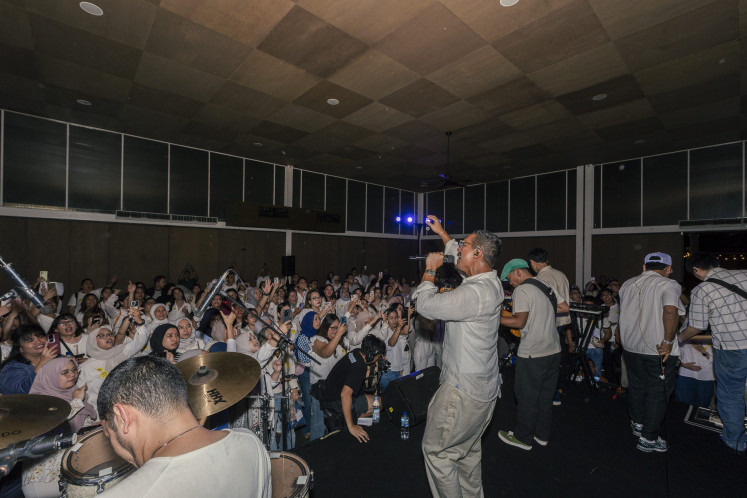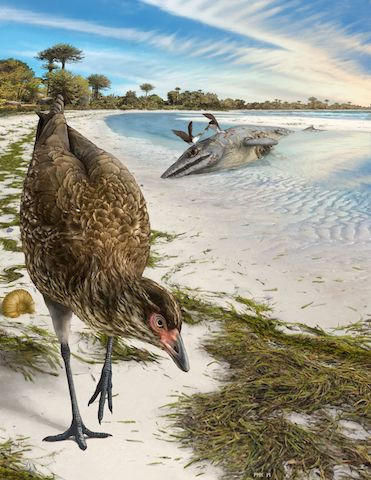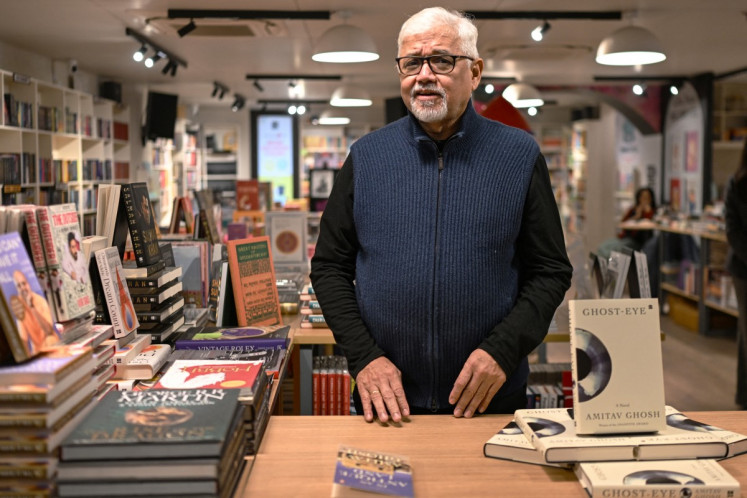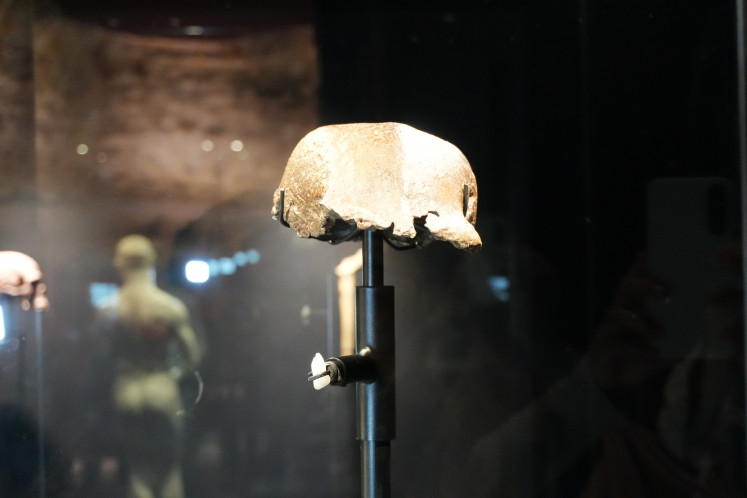Popular Reads
Top Results
Can't find what you're looking for?
View all search resultsPopular Reads
Top Results
Can't find what you're looking for?
View all search resultsWonderchicken' fossil from Belgium reveals dawn of modern birds
Change text size
Gift Premium Articles
to Anyone
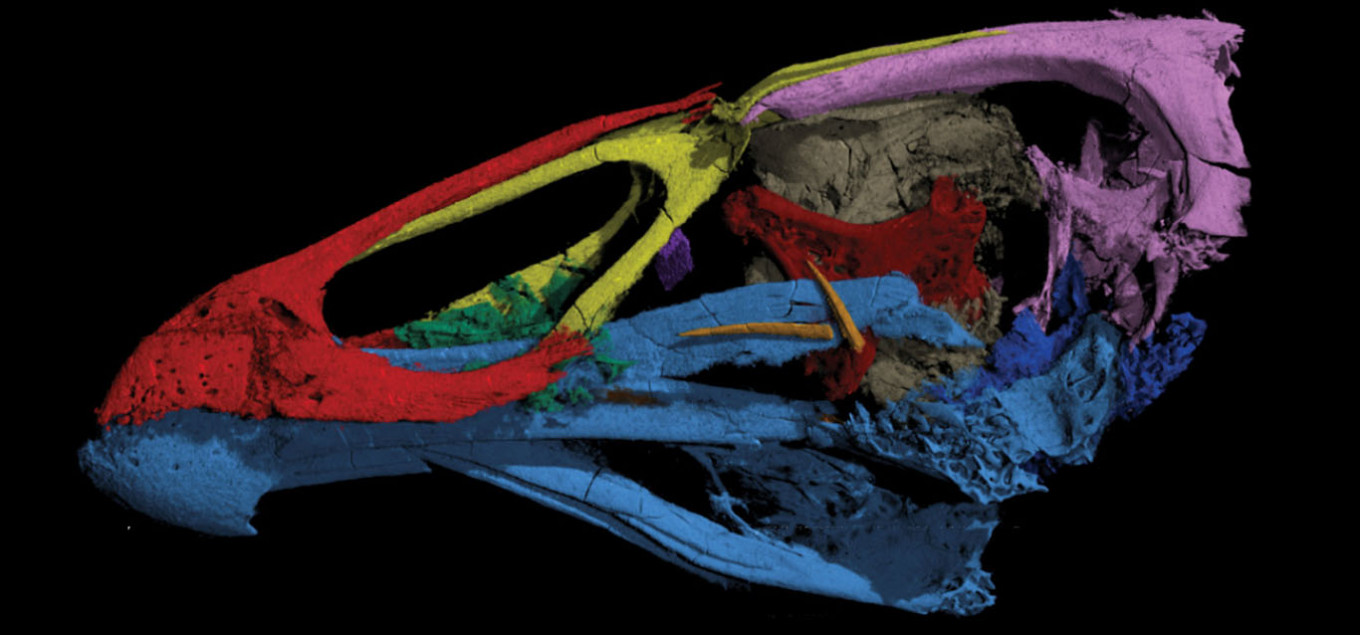 Three-dimensional image of the skull of the world's oldest-known anatomically modern bird, Asteriornis maastrichtensis, which lived 66.7 million years ago, in this handout photo released to Reuters on March 17, 2020. (REUTERS/Handout/University of Cambridge/Daniel J. Field).
Usage: 0 (REUTERS/Handout/University of Cambridge/Daniel J. Field)
Three-dimensional image of the skull of the world's oldest-known anatomically modern bird, Asteriornis maastrichtensis, which lived 66.7 million years ago, in this handout photo released to Reuters on March 17, 2020. (REUTERS/Handout/University of Cambridge/Daniel J. Field).
Usage: 0 (REUTERS/Handout/University of Cambridge/Daniel J. Field)
A
fossil unearthed in Belgium dubbed the "Wonderchicken" is providing a rare glimpse into the early evolution of modern birds at the twilight of the age of dinosaurs, right before an asteroid impact altered the course of life on Earth.
Researchers on Wednesday described a partridge-sized bird named Asteriornis maastrichtensis that inhabited a seashore environment 66.7 million years ago during the Cretaceous Period. It represents the oldest-known anatomically modern bird, sharing skull traits with today's landfowl like chickens, turkeys, quail and pheasants as well as waterfowl like ducks, geese and swans.
Birds evolved from small feathered dinosaurs roughly 150 million years ago. Many birds retained primitive features like teeth until the asteroid struck some 66 million years ago, triggering a mass extinction that erased three-quarters of Earth's plant and animal species.
Artist's reconstruction of the world's oldest-known anatomically modern bird, Asteriornis maastrichtensis, in this handout photo released to Reuters on Tuesday. (Reuters/Phillip Krzeminski)
A current estimate for the appearance of the common ancestor of all 11,000 living species of birds is somewhere between 100 million and 70 million years ago, based on DNA mutation rates. Until now the oldest fossil of an anatomically modern bird was one called Vegavis that lived 66.5 million years ago in Antarctica, though there is a debate about its placement on the bird family tree.
At first glance, the fossil looked unimpressively like a few broken limb bones poking out of a small rock.
"When we CT scanned the rocks to get a better look at the limb bones we were shocked to discover an incredible, nearly complete skull peering out at us from the computer screen," said University of Cambridge paleontologist Daniel Field, lead author of the research published in the journal Nature.
"This skull is one of the best preserved fossil bird skulls of any age, so the fact that it is from such an important point in Earth history is amazing," Field added.
Field coined the "Wonderchicken" nickname, owing to its chicken-like beak and its scientific importance. Its scientific name Asteriornis honors Asteria, an ancient Greek goddess of falling stars, a nod to the imminent asteroid.
Asteriornis provides clues as to which factors may have helped some birds survive the asteroid impact while others perished, said paleontologist and study co-author Daniel Ksepka of the Bruce Museum in Greenwich, Connecticut.
Its relatively small size - a foot-long (30-cm-long) body - - may have helped it survive as the global environmental calamity caused by the asteroid strike made it hard for larger animals to find enough to eat, Ksepka said.
Its adaptation to a shoreline environment, Ksepka added, meant it would have been spared from the wildfires believed to have destroyed most of the world's forests after the asteroid impact may have incinerated tree-dwelling birds.

